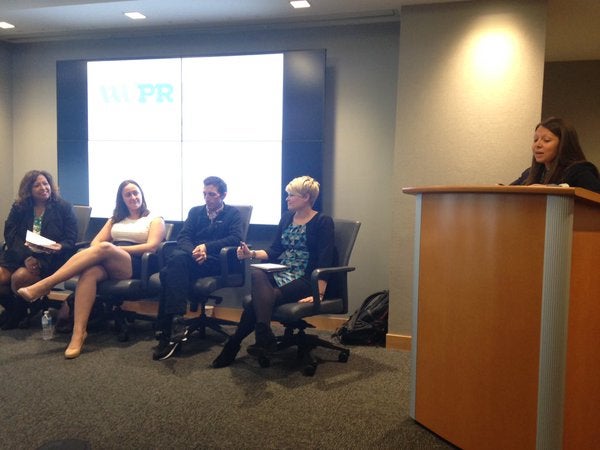By Dinesha Rogers
Cause-related marketing is a powerful marketing tool that business and nonprofit organizations are increasingly leveraging. Although originally a marketing strategy that occurred offline, cause marketing has been conducted more and more through online channels in the last decade. The advent of online cause marketing has allowed consumers, for example, to take a far more active role in cause marketing. To better understand the tools and methods of social media marketing for cause-driven campaigns, I had the pleasure of attending the Washington Women in Public Relations’ (WWPR) luncheon panel discussion.
On Tuesday, November 17th, WWPR’s Professional Development Committee and representatives from Golin welcomed a packed house for an extremely informative and fascinating discussion on cause-driven marketing campaigns. The amazing expert panelists included:
- Julie Dixon, Deputy Marketing Director, Golin
- Alexandra Nalevanko, Corporate Education Partnerships, Discovery Education
- Ronne Ostby, Director of Strategy and Planning-Health Marketing Group, ICF International
- Brian Reich, Managing Director, little m media
After a great introduction by WWPR’s President, Avelyn Austin, the panelists dove into a great discussion led by moderator, Melissa Springer, Vice President and Client Strategy at Social Driver. Each panelist spoke about efficacious social media campaigns and articulated how clear goals, content, and actions need to be established before a campaign should consider going into market. Ronne Ostby stated, “Research is the foundation of everything. For me and the work that I do, it’s really about what we are trying to persuade folks to do: 1) What are they currently doing?; and 2) How do they feel about what we’re asking them to do?” Truly committing and engaging with your audience is essential in raising awareness for your cause or mission. Creating an impact is the ultimate goal of cause-driven campaigns.
The audience was then led to critically think about how to find the balance between meeting business and personal goals. “Cause marketing does not work because everyone is self-motivated. It works because there is balance and passion for what you love to do”, Brian Reich explained. When marketing for a cause, the benefits occur when the consumer achieves the consciousness of being a philanthropist and aiding the world in a progressive light.
The expert panelists believe the future of cause-driven campaigns will continue to be an emotional attachment and exude more in traditional media/events. They encouraged the audience to continue to walk in their purpose and pursue that thing that drives you daily. Developing communications plans surrounding social purpose initiatives, from both corporate and non-profit sectors, is not always easy. But, with effective planning and execution, your campaigns will be able to influence the world!
For more information about Washington Women in Public Relations, visit their website at www.wwpr.org. Also, follow them on Facebook @WashingtonWomenInPublicRelations, Twitter @WWPR and Instagram @wwprdc.




